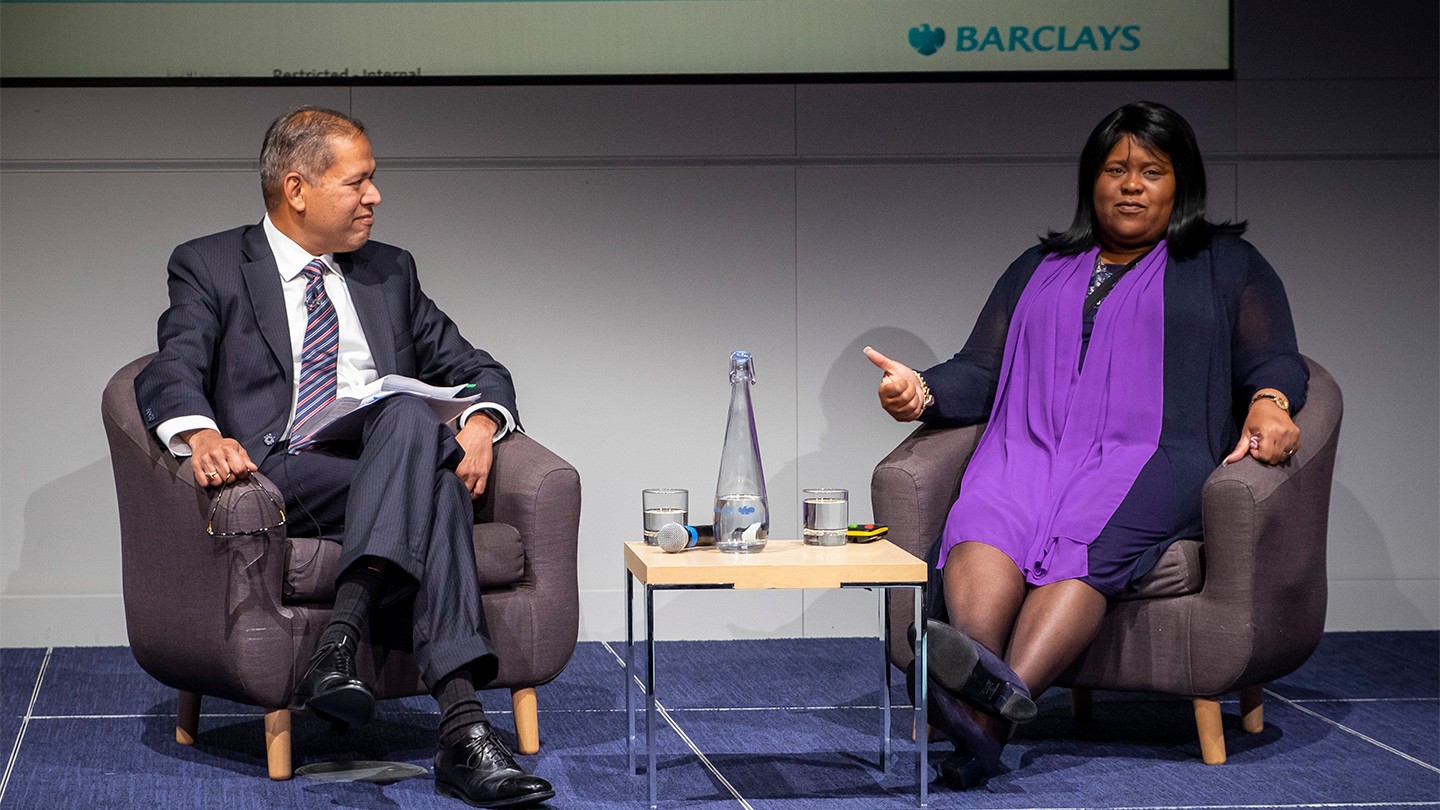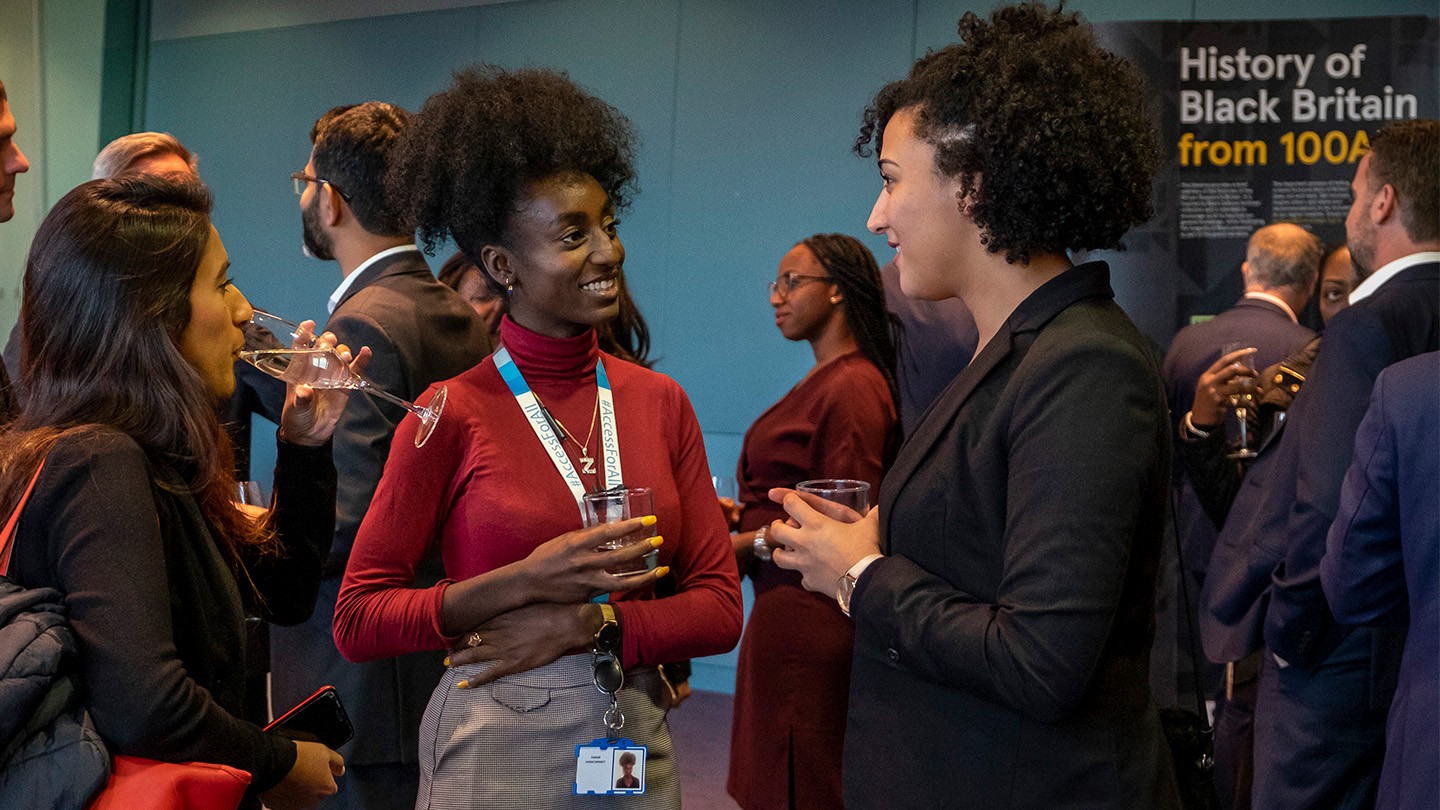
Culture
Equality from boardroom to branch: the Race at Work Charter at Barclays
Barclays colleagues and senior leaders in the UK gathered to celebrate Black History Month and mark one year since the bank signed up to the government’s Race at Work Charter – a commitment to create an environment inclusive of race and ethnicity at all levels.
“Black History Month is a time to talk about the challenges we know black people face, especially in building their professional careers,” said Kelechi Onukogu, addressing a 100-strong audience at Barclays’ head office in London’s Canary Wharf.
The Director of Group Chief Controls Office at Barclays, who is also Co-Chair of the bank’s Black Professionals Forum, was speaking at a Black History Month event focusing on ethnic and racial inclusion at work.
Recognising that the discourse on diversity and inclusion in business has often been “heavily skewed towards gender or sexual orientation” rather than the “race agenda”, Onukogu said the conversation was now changing.
He cited the government’s Race at Work Charter – to which Barclays became a signatory last October – as one of the key drivers for that change. “The Charter allows us to move from dialogue to real actionable steps, and work with our leaders to drive momentum. One year on, where are we? From my vantage point, although the topic of race is still somewhat uncomfortable for some, it’s now being spoken of more freely and more frequently.”
The Charter – which now has 192 signatories – was set up a year ago by outreach charity Business in the Community and former UK Prime Minister Theresa May. It calls on signatories to put specific steps in place to support race equality throughout their businesses.

Sandra Kerr CBE discussing the Charter
“Leaders in this bank realised the future was going to be diverse.”
Sandra Kerr CBE, Business in the Community’s Race Equality Director – the pioneer behind the Charter, and guest speaker at the event – praised Barclays for setting a strong example for employers committed to the Charter.
“Barclays was actually one of the founder members of our race campaign,” she said. “Many years ago, when employers weren’t even thinking about this, there were leaders in this bank that realised the future was going to be diverse.”
Kerr explained that while more and more employers are joining the Charter each day, there is still a need to raise awareness of race equality in UK workplaces, for the benefit of both current and future workforces.
“When I look at the latest ethnicity and diversity data, I don’t think everybody gets it,” she said. “It’s still important to make the case for change and help people understand why this matters. I know that one in three children at primary school age in the UK are from a minority ethnic background. That’s a future talent pipeline.”
Barclays LifeSkills programme
Kerr cited the Barclays LifeSkills programme – which, since 2013, has seen Barclays colleagues go out into schools, colleges and universities to equip young people with the skills needed to enter the world of work – as a “wonderful” example of upskilling the next generation. “There’s something about getting people out of the building and into the community so that people can see those role models and see that there’s people like them working in banking.”
Businesses need to ensure access too, continued Kerr. “We need to ensure that people who don’t have the appearance, who don’t have the know-how, but are bright and given the opportunity will be a great fit, can actually have access to this organisation.”

Attendees discussed the progress of the Race at Work Charter at the Barclays event in Canary Wharf
“The time is always right to do what is right”
From mentoring schemes to encouraging multicultural awareness, Barclays’ Chief Operating Officer of the Corporate Bank Steve Allen explained some of the steps his team has taken in the last year to get on board with the Charter’s aims.
"One of the commitments is that I got my top 50 leaders to join the bank’s multicultural network EMBRACE, and we're shortly about to launch a mentoring scheme specifically for black colleagues, regardless of grade or level, to give more opportunity and exposure."
Gerard Salzano, Barclays’ Head of Leadership, Talent, Culture, Diversity and Inclusion, said the bank’s commitment to the Charter was a step toward building an environment where all colleagues can thrive.
Building a diverse workforce
“The case for building a truly diverse workforce is compelling and at Barclays we are committed to creating a culture where everyone belongs, where they feel included and their talents nurtured,” he said. “The person I most admire in recent history is Dr Martin Luther King Jr. Throughout my life I have carried with me the quotation: ‘The time is always right to do what is right’.”
Ken Osivwemu, Barclays Vice President for Liquidity Product Management, and Co-Chair with Onukogu of the Black Professionals Forum, said it was important to discuss race and ethnicity in business in order to make change.
“Events like today give us a platform to start having genuine conversations about race and ethnicity. If we shy away from having those conversations, our ability to create an inclusive environment starts to diminish.”